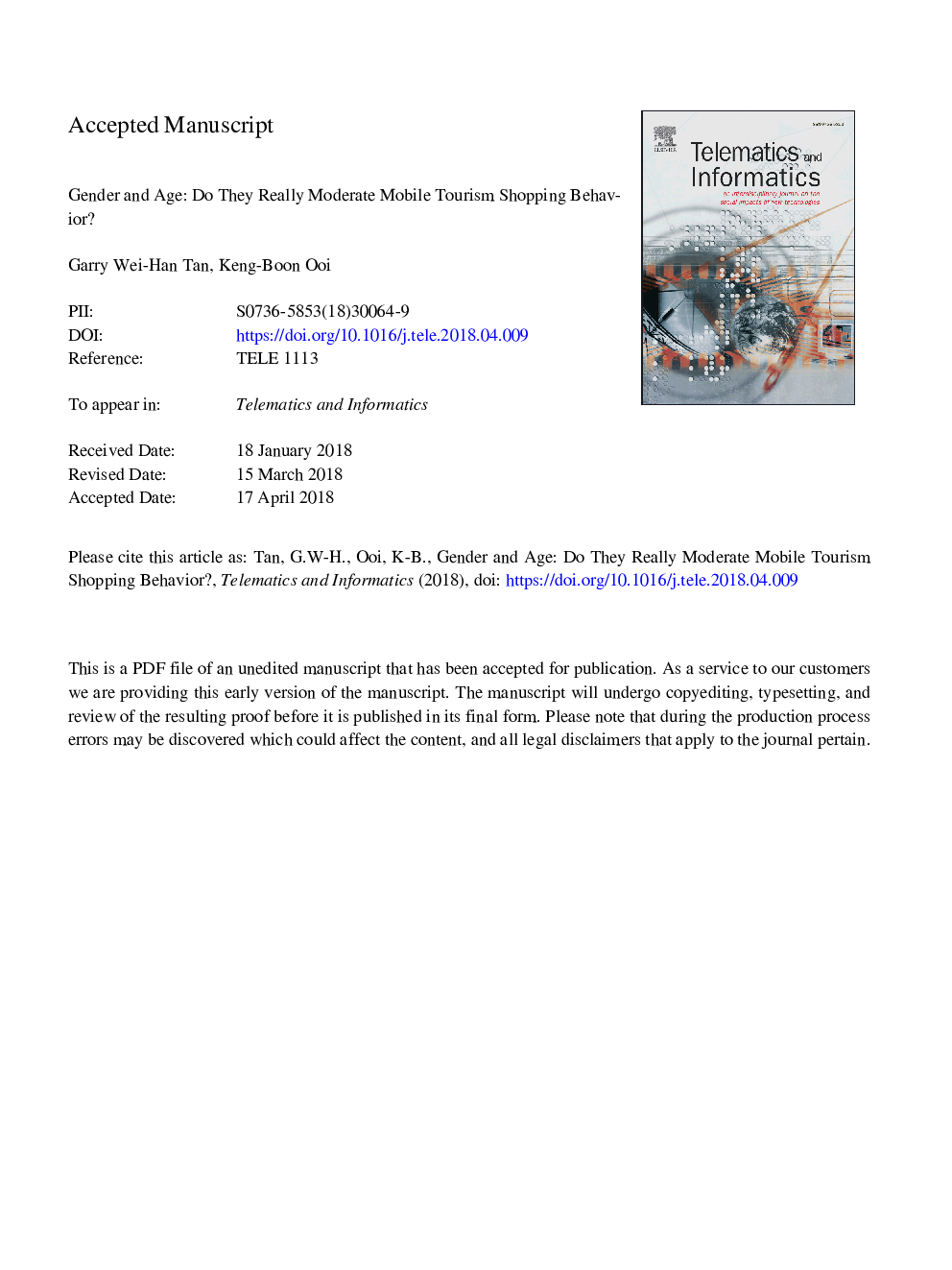| Article ID | Journal | Published Year | Pages | File Type |
|---|---|---|---|---|
| 6889477 | Telematics and Informatics | 2018 | 48 Pages |
Abstract
With the growing popularity of mobile devices (m-devices) and technological advancement in wireless networks, a new form of shopping channel has emerged in the tourism industry. Mobile tourism shopping refers to the use of m-devices to shop for tourism products and services. Given the benefits and potential of this channel, the acceptance however is not widespread and currently an under-addressed topic among academicians. Specifically practitioners are also sceptical if consumers are ready to accept this alternative channel. Drawing upon the Unified Theory of Acceptance and Usage of Technology (UTAUT) as a baseline model, the proposed model was integrated with flow theory, psychological characteristic, social environment and security concern factors to study on the mobile consumers' behavioral intention. Through the use of Partial Least Squares-Structural Equation Modelling of 503 mobile respondents, it was discovered that some of the structural paths are not consistent with past literatures. Additionally, a non-parametric permutation approach has also been conducted to discover the gender and age differences in the decision making. The findings however are mixed and therefore require further testing. This study has valuable contributions to academicians, practitioners, and society. Academically, the integrated framework contributes to the tourism and marketing literatures by uniting UTAUT, flow theory, psychological characteristic, social environment and security concern factors. Practically, by focusing on the important factors affecting consumers' decision to adopt mobile tourism shopping, organisations can create effective mobile marketing campaigns. Socially, the study contributes to job creations and revenue generation for the host country.
Related Topics
Physical Sciences and Engineering
Computer Science
Computer Networks and Communications
Authors
Garry Wei-Han Tan, Keng-Boon Ooi,
